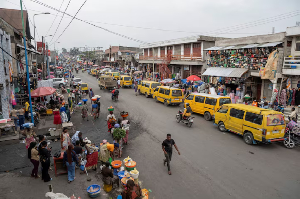From the time Ghana gained her independence in 1957 up to the middle of 2007 or thereabouts, agriculture was the mainstay of the economy. Export from cocoa alone was what kept the wheels of the economy running.
Unfortunately, the situation is not the same today, as the industry and services sectors have taken over from agriculture as the major contributors to our Gross Domestic Product (GDP).
According to the Ghana Statistical Service, in 2018, the share of agriculture in Ghana’s gross domestic product was 18.27 percent, industry contributed approximately 31.53 percent, and the services sector contributed about 43.01 percent. The slump in the growth of agriculture can be attributed to the sector- because the local banks consider it a high risk area for them to support.
Though this position of the banks is unfortunate, one cannot blame them, because they are business entities whose aim is to make profit.
Agriculture or farming in Ghana largely depends on rain instead of irrigation. Should the rains disappoint farmers in the given year, crop yields slump. In a situation like this, the farmers find it difficult to pay back loans they have taken from the banks.
The only solution to this major problem is irrigation, but unfortunately, governments under the Fourth Republic have not shown much concern about irrigation, as other countries are doing. We are not experts, but we suspect this is the major cause for the fall of the agricultural sector, even though it still employs the majority of Ghanaians.
This challenge notwithstanding though, The Chronicle is happy that credit to the agricultural sector is gradually inching up. According to a story carried by the Business and Financial Times yesterday, attributed to the Statistical Bulletin (November 2019) report, the sectoral distribution of outstanding credit by the banks shows that the agriculture and fishing sector received increased financial support.
According to the B&FT, credit advanced to the sector increased from GHC1.7billion in 2018 to GHC2.5billion at the end of November 2019. Though the position of agriculture on the list of contributors to GDP has not changed, as the industries and services are still leading, it is the fervent hope of The Chronicle that the new posture adopted by the banks towards the sector would help change the narrative.
A sector that employs the majority of Ghanaians should not have found itself in the current situation due to lack of capital and logistics. One can imagine what could have happened to our economy if farmers, due to lack of credit, decide to abandon the sectors such as industries and services, which are currently booming.
It will certainly not augur well for the country, and that is why we think that what the banks have started doing would help bring back the ‘magic’, and they must be encouraged to keep on doing that.
Editorial News of Friday, 21 February 2020
Source: The Chronicle













